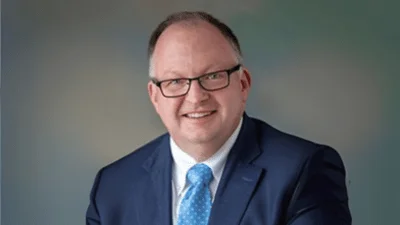Gov. J.B. Pritzker | Facebook
Gov. J.B. Pritzker | Facebook
Governor JB Pritzker has signed two new laws aimed at increasing consumer protections for Illinois residents engaging in cryptocurrency and digital asset transactions. The Digital Assets and Consumer Protection Act (SB1797) and the Digital Asset Kiosk Act (SB2319) introduce regulatory oversight of cryptocurrencies and specific safeguards for users of digital asset kiosks.
The move comes as the number of scams involving cryptocurrency rises in Illinois. According to the FBI, state consumers lost $272 million to cryptocurrency fraud in 2024, making it the most common type of financial fraud last year.
“While the Trump Administration is letting crypto bros write federal policy, Illinois is implementing common-sense protections for investors and consumers,” said Governor JB Pritzker. “At a time when fraudsters continue to evolve and consumer protections are being eroded at the federal level, Illinois is sending a clear message that we won’t tolerate taking advantage of our people and their hard-earned assets.”
Under SB1797, the Illinois Department of Financial and Professional Regulation (IDFPR) will have authority to regulate and supervise digital asset exchanges and related businesses. The legislation requires these companies to meet standards similar to those governing traditional financial services, including investment disclosures, customer asset protection, customer service requirements, sufficient financial resources, and plans for handling risks such as cybersecurity threats, fraud, and money laundering.
“These initiatives modernize consumer protection and implement safeguards for all Illinoisans who choose digital asset services,” said IDFPR Secretary Mario Treto, Jr. “This is a monumental victory that prioritizes the safety and security of the people of Illinois, while also paving the way for a more transparent and accessible marketplace.”
The Digital Asset Kiosk Act introduces requirements for operators of digital asset kiosks. Operators must register with IDFPR, provide detailed reports on kiosk locations, issue full refunds to new customers victimized by scams at kiosks, cap transaction fees at 18%, and limit daily transactions for new customers to $2,500.
Both measures are intended to prevent harmful practices seen in the digital asset industry while allowing responsible businesses to operate under clear regulations. Exemptions are included in the legislation to encourage technology development within Illinois.
In contrast with recent federal approaches—where deregulation efforts have limited agencies like the Internal Revenue Service from overseeing decentralized crypto brokers—Illinois lawmakers emphasize consumer protection over industry lobbying interests.
“This bill centers on protecting consumers and investors, while also supporting companies working in the crypto space. It aims to keep bad actors out of the market and ensure that Illinois remains a leader in high-tech innovation,” said Sen. Mark Walker (D-Arlington Heights). “Illinois is a leader in high-tech innovation and start-ups. By protecting consumers, we will also help foster growth for these entrepreneurs by building public confidence in the legitimacy of cryptocurrencies.”
“The people of Illinois deserve reliable, consistent safeguards, no matter the financial service they utilize for their hard-earned money,” said Rep. Edgar Gonzalez, Jr. (D-Chicago). “I’m proud to have partnered with IDFPR on this legislation that both protects consumers and provides credibility to businesses seeking to enter the digital asset marketplace and provide legitimate services to consumers.”
“This legislation ensures that Illinois residents are protected through strong scam prevention measures, such as placing disclosures on kiosks and putting safeguards in place to prevent new users from losing their life savings,” said Sen. Laura Ellman (D-Naperville). “We’re taking a responsible step to put consumer protection first in the state. Basic consumer protections in the cryptocurrency space are lacking, and regulatory frameworks are crucial for holding operators accountable and keeping consumer dollars secure. This measure addresses areas in the virtual currency market vulnerable to fraud and empowers Illinois consumers to make informed investments.”
"It's clear that cryptocurrency will play a bigger role in our economy in the future," said Rep. Curtis J. Tarver, II (D-Chicago). " This measure will give consumers in Illinois more peace of mind as they will now know that the state is regulating the sale of these digital assets and currencies.”
Certain protections—such as immediate refunds for scam victims—take effect right away; other requirements give businesses until July 1, 2027, to comply with registration rules under IDFPR oversight.




 Alerts Sign-up
Alerts Sign-up